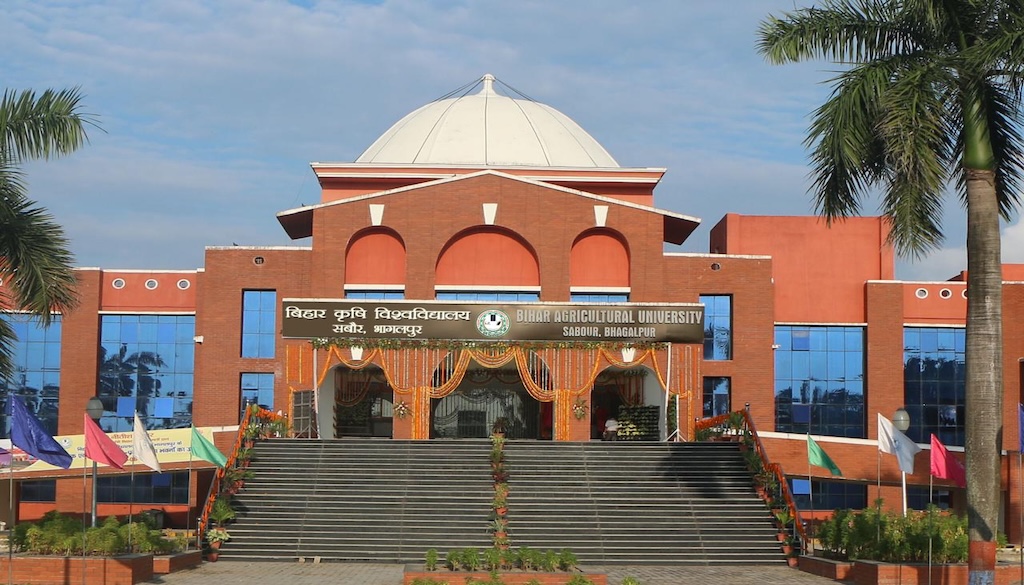Bihar Agricultural University Secures Three DST Research Projects to Advance Agricultural Innovation

Sabour: Bihar Agricultural University (BAU), Sabour, has been awarded three significant research projects by the Department of Science and Technology (DST), Government of India. These projects aim to drive agricultural innovation, enhance crop productivity, and develop climate-resilient farming strategies, ultimately benefiting farmers and strengthening the regional economy.
Boost to BAU’s Agricultural Research and Innovation
BAU Vice Chancellor Dr. D.R. Singh described the acquisition of these projects as a major milestone, stating, “Receiving these prestigious DST projects underscores BAU’s leadership in agricultural research and innovation. The focus on strategic research will not only improve crop productivity and quality but also contribute significantly to the socio-economic upliftment of farmers in Bihar and beyond.”
Dr. Singh emphasized that these projects aim to deliver practical solutions for farmers, promoting national food security and sustainable agricultural development.
Decoding Makhana Seed Size Variations
One of the projects focuses on identifying the genetic factors influencing seed size in Makhana (Euryale ferox) and their functional validation. Led by Dr. Pankaj Kumar of the Department of Molecular Biology, BAC Sabour, the research seeks to address a major challenge affecting Makhana’s market value and productivity.
Makhana is widely cultivated in Bihar’s north-eastern districts, including Madhubani, Darbhanga, Katihar, and Purnia. Known as a “superfood,” its nutritional properties and medicinal value have gained global recognition. However, inconsistency in seed size remains a key issue for farmers.
Research Objectives and Farmer Benefits
- Understanding variations in Makhana seed size and determining whether these are driven by genetic or environmental factors.
- Identifying key genes associated with seed size through quantitative trait locus (QTL) mapping and genome-wide association study (GWAS).
- Applying CRISPR-Cas9 gene editing to validate and modify genes influencing seed size.
The insights from this study will aid in developing Makhana varieties with uniform, larger seed sizes, increasing both productivity and market value, and enhancing the economic prospects of the Mithila region.
Enhancing Rice Quality Amid Climate Change
The second project is focused on improving rice quality in response to rising night temperatures, which are increasingly affecting rice starch composition, grain texture, and taste.
Rice is a staple in India’s food security framework. However, climatic shifts, particularly elevated nighttime temperatures, are negatively impacting rice quality.
Key Research Goals
- Identifying climate-resilient rice genotypes to support the development of new, heat-tolerant varieties.
- Studying stress-tolerant genes such as ABA receptors (ABAR) and heat shock proteins (HSP) for crop improvement.
- Enhancing rice quality to bolster national food security and ensure stable yields despite climate fluctuations.
Unraveling the Genome of Black Turmeric
The third project, led by Dr. Pawan Kumar Jaiswal, focuses on sequencing the genome of black turmeric (Curcuma caesia), a rare medicinal plant known for its potent antioxidant, anti-cancer, and anti-inflammatory properties.
Despite its extensive medicinal applications, there has been limited research on the genetic and biochemical composition of black turmeric.
Research Objectives
- Conducting de novo genome assembly and gene annotation using Next-Generation Sequencing (NGS).
- Identifying biosynthetic pathways for bioactive compounds and understanding their medicinal benefits.
- Promoting the conservation and sustainable cultivation of black turmeric to enhance its industrial and medicinal applications.
This research is expected to bolster conservation efforts and expand commercial uses, providing economic benefits to farmers engaged in medicinal plant cultivation.
Dr. Anil Kumar Singh, Research Director at BAU, Sabour, stated, “Our goal is to empower farmers with advanced research, improved crop varieties, and sustainable farming practices to enhance their income and quality of life.”





